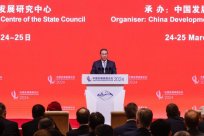Source: Bloomberg
Author: Chen Lulu, Denise Wee
Eric Li was originally hired by the family financial management room. As the employer moved away from Hong Kong, he was unemployed. He knew he would face a severe employment market.What he didn't know was: it would be so grim.
17 months have passed, and Li is still job hunting.The bills are accumulated like mountains -nearly HK $ 60,000 ($ 7,700) per month and educational fees for children of 1 million Hong Kong dollars per year.But the worst thing is that they are worried that they will gradually accept that they are not under the bottom.
Five years ago, professionals such as LI with Chinese professional knowledge were sought after by companies such as UBS and Citi Group.The first public offering of Xiaomi and Meituan companies (IPOs) has consolidated the status of financial towns that can be compared with New York.Their efforts to help mainland Chinese companies listed in Hong Kong and the United States create a market value of more than $ 6 trillion.
Now, the situation of geopolitical tensions between China and the United States has led to fragmented capital markets.As the stock price plunged and the economic prospects were dim, the Hong Kong IPO had exhausted.As China promotes the strengthening of data security and financial market supervision, it makes it difficult for Chinese companies to acquire assets or go public overseas.
"In the past, I felt that China would have been developing up and the world financial markets more and more closer. I felt that all this was taken for granted. Now I found that it was an accident," said Li, who was working in Citi Group."This is quite scary."
Hong Kong is the hub of such transactions, and the pain experience is even better than other places.A large number of layoffs of Wall Street companies, global capital withdrawal from the world's second largest economy, and Hong Kong's position as the international financial center have continued to decline, all highlighting this damage.
According to John Mullally, the director of the recruitment company, the number of non -entry -level financial practitioners who find a job in Hong Kong is "hundreds of people".
"This market is already fragile enough," said Mullally, managing director of Robert Walters.He said the layoffs have not yet come.
In the past 18 months, Goldman Sachs, Morgan Chase and Citi have conducted several rounds of layoffs in Asia.
A banker who was fired by Goldman Sachs said that it prompted her and her colleagues to evaluate whether to stay in Hong Kong and even stay in the industry.She said that the decline in the number of IPOs from China means that the banking industry needs to consider reorganizing all over Asia, and the manpower that increased because of the recruitment in the past seemed unreasonable.
Another one is even more decisive.Yang, who was a global investment bank analyst, was unemployed last year. At the age of 24, she spent a few months in job hunting. She participated in consulting, venture capital, and private equity companies for about 10 interviews, but she did not get it.As the rental rental contract of HK $ 20,000 per month is about to expire, she decided to move back to the Mainland to live with her parents, and intends to find a job in industries other than traditional finance.
Yang said that competition is much more intense than before.When talking about sensitive career issues, she asked not to disclose the full name, just like other respondents in this article.She said that if there is a private equity position in the market, hundreds of former bankers will vote for resumes.
Since the end of 2021, the number of licensed people in the Hong Kong Securities Regulatory Commission (reflecting the number of financial professionals in Hong Kong) has decreased by more than 600, as of December 44722.
In view of the financial service industry in 2022, it accounted for about 23%of Hong Kong GDP and 7.5%of the number of employment, and the slowdown in financial service activities may make Hong Kong's economic pressure.The recovery of Hong Kong's epidemic last year was lower than expected. Bloomberg's economic research estimated that this year's GDP growth rate will slow from 3.2% in 2023 to 1.8%.
Bloomberg's data shows that last year, the Hong Kong IPO fund fundraising drama fell 56%to 46 billion Hong Kong dollars, which was the lowest level since the crushing of the Internet bubble more than 20 years ago.
Private equity and venture capital companies have also been hit.According to data from Preqin LTD, compared with 2021, the funds raised by China's US dollar funds last year dropped by 81%.
The bankers focusing on Chinese are the first, whether the seller or the buyer.Charlene Yeung, executive director of the recruitment company specializing in high -level recruitment companies, said that investor relationship manager has also been seriously affected because their skills are difficult to transfer.
Yeung said that this is severe for emotions.It looks like this year, and I hope it is.
She added that bankers should be prepared, and the salary decreases at least 20%, and in some cases, the decline is "very serious."
Mullally said that the latest round of layoffs on the eve of the New Year of the Lunar New Year is mainly concentrated on the managing director and the following level personnel.
Henry, a debt banker who worked in a Chinese-funded securities firm in Hong Kong, found that some former colleagues were unemployed for more than a year that even if the salary was reduced by 30-40%, he would accept it.
"I'm worried that they may be laid off at any time," he said."All businesses are paralyzed."




